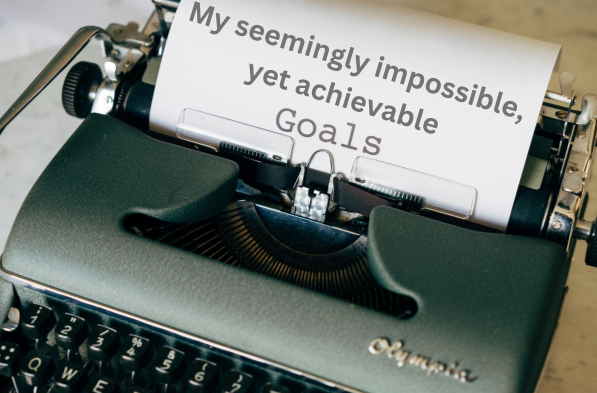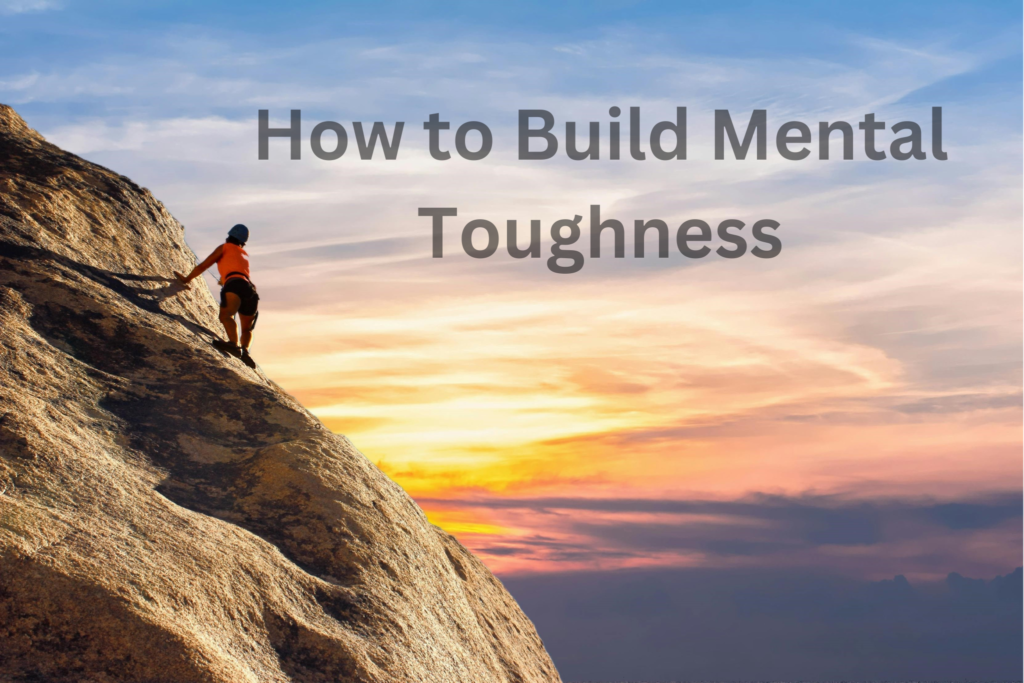Ever felt like you’re constantly battling life’s challenges, only to come up short? You’re not alone. In today’s fast-paced world, it’s easy to feel overwhelmed and underprepared. But what if I told you there’s a way to build mental toughness, to face these obstacles head-on and become stronger?
Table of Contents
Toggle1 – How to Build Mental Toughness
Mental toughness isn’t just for elite athletes or military personnel. It’s a skill that can benefit everyone, from students to CEOs, and even parents juggling multiple responsibilities. But what exactly is mental toughness?
Think of it as your mind’s armour – a blend of resilience, focus, and unwavering determination. It’s the ability to push through discomfort, bounce back from setbacks, and stay committed to your goals when it gets tough.
Now, you might wonder, “Can I develop mental toughness?” The answer is a resounding yes! Just like building physical strength, mental toughness can be cultivated with the right techniques and consistent practice.
If you’re aiming to build and maintain physical strength, these “adjustable dumbbells” might be exactly what you need.
Let’s dive in and discover how to build the mental toughness you need to thrive in any situation.
2 – Setting Challenging Goals: Your First Step to Mental Toughness

Ever heard the saying, “Shoot for the moon. Even if you miss, you’ll land among the stars”? Well, that’s exactly what we’re talking about when it comes to setting challenging goals.
Now, you might be thinking, “Wait a minute, how does setting goals relate to mental toughness?” Great question! Here’s the deal: challenging goals push you out of your comfort zone. They force you to stretch your abilities, face your fears, and overcome obstacles. And guess what? That’s mental toughness in action!
But here’s the catch – we’re not talking about any old goals. We’re talking about SMART goals. What’s SMART, you ask? It stands for Specific, Measurable, Achievable, Relevant, and Time-bound. These aren’t just fancy words; they’re your roadmap to success.
Let’s break it down
Specific – Instead of “I want to get fit,” try “I want to run a 5K race.”
Measurable – How will you track your progress? Maybe it’s running a certain distance or time.
Achievable – Be ambitious, but realistic. Running a marathon might be too much if you’ve never jogged before.
Relevant – Make sure your goal aligns with your broader life goals and values.
Time-bound – Set a deadline. It creates urgency and keeps you focused.
Now, here’s the secret sauce: start small, but dream big. Each small goal you achieve builds your confidence and, you guessed it, your mental toughness. It’s like lifting weights for your mind – you start with what you can handle and gradually increase the challenge.
Remember, the goal isn’t just to reach your target. It’s about who you become in the process. So, are you ready to set some goals that will push you to new heights? Trust me, your future mentally tough self will thank you for it!
3 – Developing a Growth Mindset: The Foundation of Mental Toughness
A growth mindset sees challenges as opportunities to learn and grow. It believes that with effort and practice, you can improve at anything. And let me tell you, this mindset is like rocket fuel for mental toughness.
Think about it. When you believe you can get better at something, you’re more likely to –
– Take on challenges
– Persist in the face of setbacks
– Learn from criticism
– Find inspiration in others’ success
Sounds pretty good, right? But how do you develop this mindset? Here are a few tips –
1. Embrace the power of “yet.” Instead of saying “I can’t do this,” try “I can’t do this yet.”
2. Celebrate effort, not just results. Remember, it’s the journey that builds mental toughness.
3. View failures as learning opportunities. Ask yourself, “What can I learn from this?”
4. Seek out challenges. The more you push yourself, the stronger you’ll become.
Shifting to a growth mindset isn’t always easy. You might catch yourself slipping back into old thought patterns. But recognizing and addressing those moments is a step forward!
Remember, developing a growth mindset is a journey, not a destination. It’s about progress, not perfection.
4 – Practicing Mindfulness and Meditation – Your Secret Weapons for Mental Toughness

Mindfulness and meditation are like a gym for your brain. They help you focus, manage stress, and stay calm under pressure. And guess what? Those are all key ingredients in the recipe for mental toughness.
So, what exactly is mindfulness? Simply put, it’s being fully present in the moment. It’s noticing your thoughts and feelings without judging them. Sounds easy, right? Well, in our world of constant distractions, it’s trickier than you might think.
And meditation? Think of it as a workout routine for mindfulness. It’s a practice that helps you get better at being present and focused.
1. It improves your focus: Ever tried to concentrate when your mind’s racing? Mindfulness helps you cut through the mental chatter.
2. It reduces stress: By helping you stay in the present, you worry less about the future or past.
3. It boosts emotional control: You’ll get better at observing your emotions without being overwhelmed by them.
Sounds good, doesn’t it? But I know what you’re thinking: “I don’t have time to sit and meditate for hours!” Good news – you don’t have to. Even a few minutes a day can make a difference.
Here’s a simple way to start –
1. Find a quiet spot and sit comfortably.
2. Close your eyes and focus on your breath.
3. When your mind wanders (and it will), gently bring your attention back to your breath.
4. Start with just 5 minutes a day and gradually increase.
Remember, it’s called a practice for a reason. You won’t be perfect at first, and that’s okay. The key is consistency. Stick with it, and you’ll start to notice changes in how you handle stress and challenges.
5 – Embracing Discomfort – The Uncomfortable Path to Mental Toughness
So, what does embracing discomfort look like in real life? It’s about purposely putting yourself in challenging situations. It’s about doing things that make you a little nervous or unsure. It’s about pushing your boundaries, bit by bit.
Now, I’m not saying you should go out and do something completely reckless. We’re talking about calculated risks here.
Here are some ways you can start embracing discomfort –
1. Try something new: Take a class in a subject you know nothing about. Learn a new skill. The discomfort of being a beginner builds resilience.
2. Face your fears: Afraid of public speaking? Volunteer to give a presentation. Small steps count!
3. Push your physical limits: Run an extra mile. Hold that plank for 10 more seconds. Physical challenges build mental toughness too.
4. Have difficult conversations: Address issues you’ve been avoiding. It’s uncomfortable, but it builds confidence.
5. Set ambitious goals: Aim higher than you think you can reach. The stretch will make you stronger.
The key is consistency. Make embracing discomfort a regular part of your life. It might not feel great in the moment, but I promise you, the growth on the other side is worth it.
So, what uncomfortable thing are you going to tackle first? Your future, mentally tough self is rooting for you!
6 – Building Healthy Habits – The Foundation of Mental Toughness

First up, sleep. I know, I know, you’ve heard it before. But seriously, good sleep is like a secret superpower for mental toughness. It helps you focus, makes you more emotionally stable, and boosts your willpower. Aim for 7-9 hours a night, and try to stick to a consistent sleep schedule.
Next, nutrition. Your brain needs fuel, just like your body. Eating a balanced diet with plenty of fruits, vegetables, and whole grains can improve your mood, energy levels, and cognitive function. And don’t forget to stay hydrated!
Finally, exercise. It’s not just about looking good in your jeans. Regular physical activity reduces stress, improves mood, and boosts cognitive function. Even a 30-minute walk can make a difference.
But here’s the tricky part – building these habits takes time and, you guessed it, mental toughness. Start small. Maybe it’s going to bed 30 minutes earlier, adding an extra serving of veggies to your day, or taking a short walk during your lunch break.
Remember, consistency is key. These habits might not feel earth-shattering at first, but over time, they’ll build a solid foundation for your mental toughness.
7 – Learning from Failure: Turning Setbacks into Stepping Stones
So, how do you turn failure into a tool for growth? Here are a few strategies –
1. Reframe failure as feedback: Instead of thinking “I failed,” try “This didn’t work. What can I learn from it?”
2. Analyze what went wrong: Be honest with yourself. What factors contributed to the failure? What was in your control, and what wasn’t?
3. Make a plan: Based on what you’ve learned, how can you approach things differently next time?
4. Practice self-compassion: Don’t beat yourself up. Treat yourself with the same kindness you’d offer a friend who’s facing a setback.
5. Keep perspective: Ask yourself, “Will this matter in a year? In five years?” Often, what feels huge now won’t be as significant in the long run.
Remember, failure is not a reflection of your worth as a person. It’s just a data point on your journey to success. The more you can embrace and learn from failure, the more mentally tough you’ll become.
Developing Emotional Intelligence: The Secret Ingredient of Mental Toughness
Last but not least, let’s talk about emotional intelligence. It might sound soft and fuzzy, but trust me, it’s a crucial component of mental toughness.
Emotional intelligence is all about understanding and managing your emotions, as well as recognizing and influencing the emotions of others. It’s like having a superpower in your relationships and your mind.
8 – Here’s why it matters for mental toughness

Self-awareness: Understanding your emotions helps you recognize your triggers and manage your reactions.
Self-regulation: Being able to control your emotions means you can stay calm under pressure.
Empathy: Understanding others’ emotions helps you navigate conflicts and build stronger relationships.
Social skills: Being able to influence and inspire others is crucial for leadership and teamwork.
So, how can you develop your emotional intelligence?
1 – Practice mindfulness: Pay attention to your emotions without judgment.
2 – Keep an emotion journal: Track your feelings and look for patterns.
3 – . Ask for feedback: Others might see things in you that you don’t.
4 – Practice active listening: Focus on understanding others, not just waiting for your turn to speak.
5 – Put yourself in others’ shoes: Try to see situations from different perspectives.
Remember, like any skill, emotional intelligence takes practice. But the payoff is huge – not just for your mental toughness, but for your overall quality of life.
Your Journey to Mental Toughness Starts Now
We’ve covered a lot of ground, haven’t we? From setting challenging goals to embracing discomfort, from building healthy habits to learning from failure, and finally, developing emotional intelligence. Each of these elements plays a crucial role in building mental toughness.
But here’s the thing – mental toughness isn’t a destination. It’s an ongoing journey. It’s something you’ll continue to develop throughout your life. There will be ups and downs, successes and setbacks. And that’s okay. That’s exactly what makes you mentally tough.
Remember, small steps taken consistently can lead to big changes. You don’t have to overhaul your entire life overnight. Start with one area. Maybe it’s setting a challenging goal, or starting a mindfulness practice, or working on your emotional intelligence. Choose what resonates with you and start there.
And most importantly, be patient and kind to yourself. Building mental toughness takes time. Celebrate your progress, learn from your setbacks, and keep moving forward.
You’ve already taken the first step by reading this post and considering how to build your mental toughness. That’s huge! So, what’s your next move? Whatever it is, know that you have the power to become mentally tougher, more resilient, and better equipped to handle whatever life throws your way.
Your journey to mental toughness starts now. Are you ready? Because I believe in you, and I can’t wait to see how far you’ll go!
Affiliate Disclosure:
This post may contain affiliate links. If you click on an affiliate link and make a purchase, we may earn a small commission at no additional cost to you. Learn more on our Affiliate Disclosure page.




